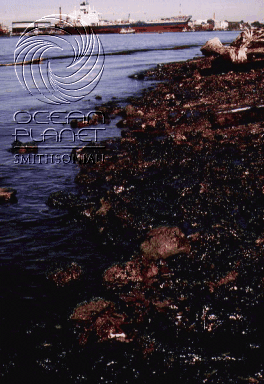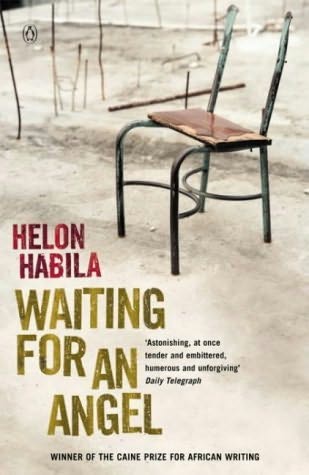Thursday, December 11, 2008
My Pledge
Sunday, November 30, 2008
Child Soldiers...
 The military use of children takes three distinct forms: children can take direct part in hostilities (child soldiers), or they can be used in support roles such as porters, spies, messengers, look outs, and sexual slaves; or they can be used for political advantage either as human shields or in propaganda.
The military use of children takes three distinct forms: children can take direct part in hostilities (child soldiers), or they can be used in support roles such as porters, spies, messengers, look outs, and sexual slaves; or they can be used for political advantage either as human shields or in propaganda.Throughout history and in many cultures, children have been extensively involved in military campaigns even when such practices were supposedly against cultural morals. Since the 1970s a number of international conventions have come into effect that try to limit the participation of children in armed conflicts, nevertheless the Coalition to Stop the Use of Child Soldiers reports that the use of children in military forces, and the active participation of children in armed conflicts is widespread.

As I was doing my research on child soldiers I came across another blog all about the Human Trafficking Project. After reading the post, there was one part that truly stood out to me:
"A child enters the world with no paradigms, no preconceived notions, no
stereotypes or limitations on what they can or cannot do. They are blank
canvasses upon which we adults paint the rules and ways of the world as we
understand them, as our community, society, nation and world dictates. As a child
solider, their mind is twisted, brainwashed and pigeon-holed into a reality
based on violence and killing. The child soldier is the saddest of trafficking
victims."
I honestly feel as though it could nothave been said better. This particular blog summed it up. They explain the concept of child soldiers in the simplest and easy to understand way.
The main concern I have for the child soldiers is how they will live after everything is over with. These poor children are only used for a few years and then they are discareded like trash. At that point in their lives they have seen and done ore then any other child their age. They have been torn apart mentally and probably physically. The mental issues that they have now are more then many people would know how to handle. There are many people out there that are trying their best to work with what child soldiers that have been tossed aside. But it is surely a task that is going to go on for the rest of their lives.
Johnny Mad Dog

The author of Johnny Mad Dog, Emmanuel Dongala, did a great job showing the real inside story behind the child soldiers. As I had already been learning from other books that I have had the opportunity to read this semester, the issues behind the child soldiers were very deep. Yet the author I believe showed the honest down to the gritty truth behind it all. He showed you how things were and did not try to sugar coat it, which I think was very important. Things of that nature need to be out in the open, people need to know what is going on and they need to know the truth.
It was very interesting to me how Dongala showed both sides of the story. He used character in a great way. He was able to clearly portray the mental logic behind the children that were sucked into that way of life. As well as the other families and children that were affected by the child soldiers. Previously to reading this particular novel, I looked at the issues regarding the child soldiers one sided. I couldn't get past the things that these children were doing and how it affected the people around them. Though now, after reading this novel, I have had a reaslistic look into the minds of these children. I was really able to see what they are thinking about.
This book shows just how courrupt their minds have become. I have learned that this is way more serious then I ever would have thought. The character Johnny Mad Dog is a very unique character. Reading about the things that he did and the things that went through his head were very disturbing.
Things like this shows that Johnny Mad Dog was not a normal sixteen year old. He not only had violence flowing through his blood. But he also had false ideas flowing through his head about the powers that those above him had. They were not just above him in rank, but to him had some special powers makind them of another higher being. Which just shows that the young boys were not only angered, but they also were brain washed in more way then I would have ever thought."The others laughed some more. I was boiling with rage. I though
of liling Giap, and I imaghined my hand reaching steathily for my AK-47.
But my quick mind realized that he's already attached his bullet-shield fetish
to his biceps. This fetish, at its weakest, could transform bullets into
clumps of wet dirt, and at maximum power could make the slugs ricochet off his
body and whiz back to strike whoever had fired them."
Oil Polution in Africa
 Oil spills are the release of a liquid petroleum hydrocarbon into the environment due to human activity, and is a form of pollution. This type of pollution is a major concern for the countries on the coast of Africa.
Oil spills are the release of a liquid petroleum hydrocarbon into the environment due to human activity, and is a form of pollution. This type of pollution is a major concern for the countries on the coast of Africa. According to UNEP Regional Seas: Oil is a major pollution threat to coastal ecosystems, owing to the heavy use of the tanker route along the East African coast. On any given day there are hundreds of tankers in the region, many of them Very Large Crude Carriers (VLCCs). With more and more people using motorized vessels rather than human or sail power for fishing and pleasure craft is increasing pressure on the environment. The high level of traffic back and forth from Africa also can expose the marine and coastal environment to oil pollution through the discharge of ballast water and oil leaks from the different water vehicles.
Not only are there issues with the cargo carriers just traveling back and forth, for shipping purposes. There is an area that stretches from Lambert's bay on the Cape West Coast all the way to East London in the Eastern Cape, that has been designated as a "Special Area". This area for years have allowed oil tankers and other large ships to clean out their cargo or to dump oily waste. Doing this, we have figured out is adding to the oil pollution and the destruction of our marine environment.
Thankfully the United Nations is trying to do what they can to help protect the coastline of Africa, especially South Africa. As of the 1st of August 2008, it will be come and offence for oil takers to drop anything in the "Special Area". Tankers engaged in trading with South Africa will be required to retain waste on board for discharge into adequate waste facilities in the Port.
Monday, November 17, 2008
The Bleeding of the Stone
 This is a very unique book to me. For my African Literature class I never thought that I would be reading a book that was written with a Muslim background. I sadly never thought that there were any Muslims in Africa. But that shows you just how much we use stereotypes. Now that I have read the book I am happy to say that I learned something new.
This is a very unique book to me. For my African Literature class I never thought that I would be reading a book that was written with a Muslim background. I sadly never thought that there were any Muslims in Africa. But that shows you just how much we use stereotypes. Now that I have read the book I am happy to say that I learned something new. The Bleeding of the Stone is a simple tale by one of Libya's foremost novelists has the power and qualities of a myth, blending elements of magical realism, mysticism and politics. The book uses what we could call magical realism. On the other hand, when it comes to the historical and
 spiritual aspects behind the book, other people may not see anything magical about it. Some people may see all of the things that the author Ibrahim al-Koni, writes about as reality, not magical.
spiritual aspects behind the book, other people may not see anything magical about it. Some people may see all of the things that the author Ibrahim al-Koni, writes about as reality, not magical.The Author writes about a Bedouin Muslim herdsman who lives alone in the rugged mountain desert of southern Libya. Asouf, the main character lives a life which many American’s would call a life of isolation. He lives his life like this because his father taught him the need for patience and the necessity of avoiding other humans because of their evil. Through out the book Asouf, deals with many interesting characters.
One of the main characters being the THE WADDAN OR MOUFFLON is a wild mountain sheep with large curling horns that survives in the remote desert of southern Libya but is extinct in Europe. It is the oldest animal in the Sahara and has been associated in local myth with pagan gods and sacred rituals. This character plays such a huge role in the novel. Though it is only an animal, the majority of the story is based around this animal and its relationship with the main character.


Asouf struggles through out the novel with different issues of his own based off of his beliefs and morals. I like him because even though his beliefs are very different then mine he is still human. He struggles with things the good and bad in his life and anyone reading this book in some way should be able to relate to him.
Tuesday, November 11, 2008
Waiting for an Angel

This is a book that I really enjoyed reading. Helon Habila did a great job writing this book. He took something so important as the political issues in Nigeria, and turned it into a story that was worth reading. Habila made the issues in Nigeria understandable and inviting.
I have learned that Waiting for an Angel (2002), was originally written as a series of short stories (the first of which, published as ‘Prison Stories’, won him the prestigious Caine Prize for African Writing). While Habila has said that constructing the book in this way allowed him a sense of achievement as he completed each section, the fracturing of viewpoints and chronology also creates an effective jarring which mirrors the story’s tense and unsettling atmosphere.

My favorite part in Waiting on an Angel, was honestly the second chapter. In the second chapter, Lomba and his friends go to see a physic. And one of Lomba's friends wants to know when he is going to die, because he wants to be ready for it. He then learns that he is going to die sooner then expected. But that he is also going to know. He will see the angel of death right when it is time. The way that Habila writes this chapter is moving. It just had a really emotional tie to it.
I personally could not imagine knowing when I am going to die. Many people say that they want to know to be ready, just like Lomba's friend, but I think that would scare me. Most people say the only thing that they really fear is death, and I am surely one of those people. But with that fear comes the idea of living for the moment... living each day as though it was your last....
Sunday, November 9, 2008
Oil in Africa
 Oil is one of the Earth's natural resources that has become a huge problem in my eyes. Oil is a great resource, but it causes more problems then it may actually be worth. Oil has not only caused problems here in the United States but in other countries as well, especially Africa.
Oil is one of the Earth's natural resources that has become a huge problem in my eyes. Oil is a great resource, but it causes more problems then it may actually be worth. Oil has not only caused problems here in the United States but in other countries as well, especially Africa.Until recently I never actually knew that Africa had anything to do with oil. It is sad to find out that oil is not only a large issue in Africa, but that is is tearing Africa apart. It honestly seems that anything that creates income for the country, hurts it. The diamond issue that I have talked about in a previous blog is also one of those times when something that could make the country wealthier is only hurting it.
Oil in Africa has more of less become a curse. If a person is to find oil in his or her backyard, in the United States that would be a great thing. They would be rich! But in Africa, it could mean losing your land and your home to the government. I could not imagine losing my home for oil. I could see if I was profiting from it, but many times in Africa, that never happens.
Instead the government takes your home, and your land to make its own profit. And it is heartbreaking to hear that companies such as Shell and Exxon Mobile are taking part in what is going on in Africa. These are companies that are even here in the United States. I go to these gas stations all of the time to purchase gasoline. And I never one have thought of where the oil came from. Now it is actually sad to know the stories behind me being able to drive all over town. When someone people lose their land, jobs and basically their lives for it.
I feel that there are so many issues that I am learning about right now that are going on in Africa. Each thing that I learn about now hit home in such a way. They make me so mad sometimes, but then I have to sit back and wonder what am I doing to help it. Though I am not over in Africa digging
